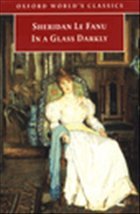`the ideal reading...for the hours after midnight' Thus Henry James described the style of supernatural tale of which Sheridan Le Fanu was a master. Known in nineteenth-century Dublin as `The Invisible Prince' because of his reclusive and nocturnal habits, Le Fanu was fascinated by the occult. His writings draw on the Gothic tradition, elements of Irish folklore, and even on the social and political anxieties of his Anglo-Irish contemporaries. In exploring sometimes inexplicable terrors, the tales focus on the unease of the haunted men and women who encounter the supernatural, rather than on the origin or purpose of the visitant. This makes for spine-chilling reading. The five stories presented here have been collected by Dr Hesselius, a `metaphysical' doctor, the forerunner of the modern psychiatrist, who is willing to consider the ghosts both as real and as hallucinatory obsessions. The reader's doubtful anxiety mimics that of the protagonist, and each story thus creates that atmosphere of mystery which is the supernatural experience.
Table of contents:
Green Tea; The Familiar; Mr Justice Harbottle; The Room in the Dragon Volant; Carmilla
`the ideal reading...for the hours after midnight' Thus Henry James described the style of supernatural tale of which Sheridan Le Fanu was a master. Known in nineteenth-century Dublin as `The Invisible Prince' because of his reclusive and nocturnal habits, Le Fanu was fascinated by the occult. His writings draw on the Gothic tradition, elements of Irish folklore, and even on the social and political anxieties of his Anglo-Irish contemporaries. In exploring sometimes inexplicable terrors, the tales focus on the unease of the haunted men and women who encounter the supernatural, rather than on the origin or purpose of the visitant. This makes for spine-chilling reading. The five stories presented here have been collected by Dr Hesselius, a `metaphysical' doctor, the forerunner of the modern psychiatrist, who is willing to consider the ghosts both as real and as hallucinatory obsessions. The reader's doubtful anxiety mimics that of the protagonist, and each story thus creates that atmosphere of mystery which is the supernatural experience.
Table of contents:
Green Tea; The Familiar; Mr Justice Harbottle; The Room in the Dragon Volant; Carmilla
`the ideal reading...for the hours after midnight' Thus Henry James described the style of supernatural tale of which Sheridan Le Fanu was a master. Known in nineteenth-century Dublin as `The Invisible Prince' because of his reclusive and nocturnal habits, Le Fanu was fascinated by the occult. His writings draw on the Gothic tradition, elements of Irish folklore, and even on the social and political anxieties of his Anglo-Irish contemporaries. In exploring sometimes inexplicable terrors, the tales focus on the unease of the haunted men and women who encounter the supernatural, rather than on the origin or purpose of the visitant. This makes for spine-chilling reading. The five stories presented here have been collected by Dr Hesselius, a `metaphysical' doctor, the forerunner of the modern psychiatrist, who is willing to consider the ghosts both as real and as hallucinatory obsessions. The reader's doubtful anxiety mimics that of the protagonist, and each story thus creates that atmosphere of mystery which is the supernatural experience.

